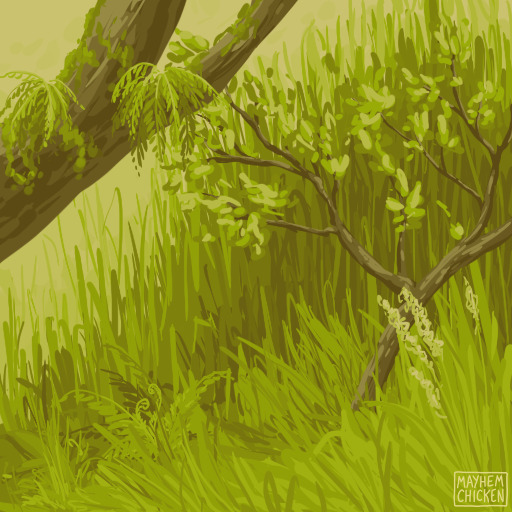Text
[A picture of the poem "Who Remembers the Armenians" by the aforementioned poet. The poem's text is:
I remember them
and I ride the nightmare bus with them
each night
and my coffee, this morning
I'm drinking it with them
You, murderer—
Who remembers you?]

By Najwan Darwish, Palestinian Poet
4K notes
·
View notes
Text
I've got a short review of the new Polar Inertia record in this one; it's a good one, but also I discovered while writing it (and even this reblog) that I cannot seem to help spelling it "Intertia" the first time I try.
Dust Volume 10, Number 4

Alena Spanger
For one day in April, we were transfixed by the sun’s brief disappearance, marveling again at our smallness in the universe, our dependence on a fiery ball in the sky which might, it seems, not be as reliable as we had always assumed. It was pretty cool, even if you weren’t in the path of totality (what an excellent phrase, by the way), and it distracted everyone for a couple of hours from all the bullshit flooding over the transom. Which is also one of the main functions of the music we consume so voraciously. We are always hoping for one or two or many transcendent experiences in these CDRs and tapes and mp3 folders that bombard us, and sometimes, dear reader, we find them. Here’s this month’s report with Tim Clarke, Bill Meyer, Andrew Forell, Alex Johnson, Jonathan Shaw, Jennifer Kelly, Ian Mathers and Bryon Hayes contributing.
Adult Jazz — So Sorry So Slow (Spare Thought)
Hard to believe it’s been 10 years since Adult Jazz’s stunning debut album, Gist Is. Perhaps the title of the Leeds band’s second full-length can be interpreted as an apology to those who have been eagerly awaiting a follow-up. So Sorry So Slow has not only been a long time coming, but also unfolds in fits and starts, as if unsure of the best way forward. It’s convulsive art-pop in the vein of Dirty Projectors or Bjork, with shades of hyper-pop in the digital sharpness of some of its edges, and chamber pop in the prominent employment of strings and horns. The album is most successful when the songs are straightforwardly beautiful, as in “Suffer One,” with its Owen Pallett string arrangement, and closer “Windfarm,” which has a pure, aching, almost New Age glow to it. Elsewhere, the overall lack of focus proves frustrating, and ultimately rather exhausting, across the album’s hour-long runtime. There’s plenty of beauty to be found, you just have to be patient.
Tim Clarke
Jeb Bishop / Tim Daisy / Mark Feldman — Begin, Again (Relay)
Begin, Again welcomes a couple of revenant Chicagoan musicians. Trombonist Jeb Bishop came back to the city after roughly ten years away, and violinist Mark Feldman after about 40. Drummer and vibraphonist Tim Daisy invited them both to workshop some material in his home studio, and this session resulted. While both Bishop and Daisy wrote pieces, there’s an authentic ensemble feel; this music is very differently balanced than Daisy’s other chamber trio, Vox Arcana. Quick changes in direction and two-on-one dynamics abound, and it’s all enacted with a lightness that gives this music a feeling of floating even when the players are bearing down with serious intent.
Bill Meyer
Cadence Weapon — Rollercoaster (MNRK)
youtube
The first thing you hear on Rollercoaster is a warm strum of acoustic guitar and the mellifluous voice of Bartees Strange. Then Canadian rapper/activist Rollie Pemberton AKA Cadence Weapon takes aim at technological saturation on his new LP Rollercoaster. The hectic production (there are 11 producer credits) mirrors the overwhelming chaos of social media flooded with bots, trolls, ads and misinformation overseen by the bloodless founder of Facebook and X’s fatuous head jester. Hip Hop, electro, RnB and manic hyperpop provide the backdrop to Pemberton’s diatribes which, although they occasionally have an odor of fish-filled barrels, say what needs saying with a maximum of snark and wit. Strange reappears periodically to offer a more organic musical and lyrical counterpoint to the hyperactivity. Pemberton has the awareness to embrace the paradox of working within the system he excoriates which adds an edge to his lyrics. If no-one is innocent and everyone’s throwing stones, Cadence Weapon is at least slinging the sharpest slates.
Andrew Forell
The Children… — A Sudden Craving (Erototox Decodings)
Michael Wiener describes the music of The Children…, his long-running collaboration with Jim Coleman, Phil Puleo and others, as “gothic blues ambient.” At the height of my concern for tidy iTunes taxonomies, I would’ve been thrilled to think of that. And I’m not being glib: it is apt. One might be tempted to flip the last two words to get the more genre-y “Gothic Ambient Blues,” but Wiener, a Dusted contributor, has the order right. Their latest release, A Sudden Craving, may lead with a loose-hinged “gothic blues,” complete with eerie electronics, possessed voices, disturbed drums and alternately ghostly and shearing guitar chords, but it’s the way the band plays in the looming ambience, the engagement with the persistent presence of space – traced, occupied and ruptured – that ties together the album’s unsettling visions. In its haunted volatility, this can be a viscerally entertaining record and easy to get into, just make sure to carve out enough headroom.
Alex Johnson
Ciro Vitiello — The Island of Bouncy Memories (Haunter x Hundebliss)
youtube
Italian producer Ciro Vitiello’s work plays out like a reverie in the liminal space between dream and memory. Ethereal vocals and impressionist lyrics from Russian born singer Zimmy and Italian musician CRÆBABE float on warm wisps of synth and closely miked acoustic guitars. The instrumental tracks have a fractal, dislocated feel as Vitiello layers keyboards and sound effects of water, birds, child’s play and the odd menacing sounds one images hearing in the beast filled fairytale forests of childhood. The mood darkens further on “Sell Change of Heart for a Crocodile” or “Living in a Bouncy Castle” as scratchy disruptions like misfiring synapses interrupt the former as the keyboards swell crepuscular in the background. On the latter, titular castle seems to be deflating slowly, closing in on the occupants in slow motion, the air escaping in big wet bubbles. CRÆBABE closes the album steeped in a lonely haze of romantic and erotic nostalgia. Altogether as lovely and disquieting as the misty maze of memory can be.
Andrew Forell
Coral Morphologic & Nick León — Projections of a Coral City (Balmat)
youtube
Miami duo Coral Morphologic (marine scientist Colin Foord and musician JD McKay) have worked together since 2007 producing projects that raise awareness of threats to marine biodiversity. Their new collaboration with producer Nick León soundtracks a multimedia installation which imagines the rising ocean reclaiming their city and enabling its colonization by resurgent coral reefs. The trio imbues this five-track suite with the tenacity and generative power of coral. An aqueous flow of somber tones dominates, but within them minute lifeforms take shape, coalesce, and spread with a quiet majesty that evokes the fragility of the reefs and inexorable process of survival and regrowth. Projections of a Coral City feels like a requiem, as much for Miami as the damage it has wrought on its environment. Poignant and hopeful it is a fitting tribute to the worlds we are in danger of losing for ever.
Andrew Forell
Critical Defiance — The Search Won’t Fall (Unspeakable Axe)
Chilean thrash specialists Critical Defiance have delivered the metal record equivalent to a day at a theme park — absent all the waiting around in long lines. There are some long-ish tunes on The Search Won’t Fall (the title track runs close to eight minutes, and album closer “Critical Defiance” clocks in over nine and a half), but you never have to wait, for the next shift in rhythm, usually from fast to really, really fast; the next solo; the next crunching, athletically paced riff. Rollercoaster-scaled ascents and descents? Yep. Tilt-a-Whirl passages of dizzying axe-craft? Check. And the whole thing has the sort of so-bad-for-you-it’s-good sensibility of that extra-large bucket of French fries that came out of a huge bag of frozen shards of spuds, or the funnel cake you watched some tatted-up kid squeeze into a viscid pool of boiling oil of indeterminate age. It’s all hugely entertaining. This reviewer loves it when the songs get short; check out the sequence of “All the Powers” (44 seconds) to “Full Paranoia” (85 seconds) to “Margarita,” in which the record suddenly bottoms out into power-ballad mode. The move is delightfully goofy, a stolen kiss in the Tunnel of Love. It’s an open question if listening to The Search Won’t Fall has any sort of enduring significance, but when the ride is this much fun, who really cares?
Jonathan Shaw
Hässlig — Apex Predator (Sentient Ruin Laboratories)
Hässlig makes an unhealthily ugly sort of noise that the metal underground has insisted on calling “blackened punk” — a strangely provoking phrase that we seem to be stuck with. This specific iteration of the sound renders the relative kinship to punk neutral (wouldn’t “raw black metal” suffice here?), or perhaps a bit more worrisome. We should note that sole member DB also makes an especially bleak variety of depressive, sometimes doomy black metal under the name Negativa, the band logo of which does an irritating nod-and-wink in the direction of the swastika. So: A Spanish dude who records under a German-sounding band name and makes a record titled Apex Predator? Do we have to do some digging on the internet’s expanding communities of fash-hunting metal listeners? Likely we can take some consolation from Hässlig’s relationship with Sentient Ruin, a label that doesn’t fuck with NSBM nonsense. Unhappy song titles like “Psychopathic Triumph” and “Raping the Exoskeleton of Life” are likely meant to communicate equal-opportunity misanthropy: DB hates everybody. But “Slaves” and “Watch Them Hang” are a more unsavory combo, and it doesn’t help that DB claims Bone Awl and Ildjarn as influences. One wonders if associating the project with punk is a sort of semiotic gambit, hoping to temper some of the more troubling language DB uses (and maybe gets an edge-lord charge out of). It’s all becoming a bit tiresome. This reviewer really enjoys the music on Apex Predator, but by saying so, what is he validating?
Jonathan Shaw
Hour — Ease the Work (Dear Life)
Michael Cormier-O’Leary leads an ensemble of 10 through pensive instrumental reveries in this third full-length as Hour. You might know Cormier-O’Leary from the bands 2nd Grade or Friendship, or from running Dear Life Records. Others playing here have done time in various ambient, folk or mildly experimental outfits, Jason Calhoun, the synth player, in Paper Armies, Elizabeth Fuschia, a violinist in Footings and on the last Bonnie Prince Billy album, Peter Gill from 2nd Grade and drummer Peter McLaughlin from Dead Gowns among others. But the players meld in a very seamless, ego-less way, supporting brief, lovely bits of melody in guitar, strings, percussion, keyboards and, occasionally, electronic samples. The title track ambles nonchalantly, a skittery beat pacing tremulous washes of strings . “Dying of Laughter,” shades a little darker, pitched somewhere between conventional Americana and David Grubbs’ languid improvisations. None of these tracks last very long or stick very well in the limbic system, but Ease the Work is, regardless, a very pleasant way to spend three quarters of an hour.
Jennifer Kelly
Paul Lydon — Umvafin Loforðun (Píanó)
Paul Lydon is an American who has lived in Iceland since the late 1980s. Throughout that time he’s kept up persistent but low-key recording under the names Blek Ink, Sanndreymi, Paul & Laura and most recently his own name. Over time, the music has changed from brittle, miniature songs to deliberately paced piano instrumentals. As befits a guy who lives his life within cultures, the music on Umvafin Loforðun (translation: Wrapped Up In Promises) doesn’t slot easily into any genre. While spare, it lacks minimalism’s interest in repetition, and in its quiet way it remains to assertive to be ambient; and while his articulation brings to mind Mulatu Astatke and Alice Coltrane, there’s really no jazz or Ethiopian influence, just a similar respect for the qualities of individual notes. It does give the impression of reflection, as though he’s conversing with himself when he plays, but each piece has a lucidity which suggests that any spontaneous processes are tempered by some compositional pruning. It’s companionable stuff, at the service of those who could use some quiet company.
Bill Meyer
Mandy — Lawn Girl (Exploding in Sound)
Sugar pop melodies nestle into blistering onslaughts of fuzz guitar in this first solo outing from Melkbelly’s Miranda Winters, and maybe what’s interesting here is how a mature artist uses the basic rock and roll tools of her youth.For instance, though a new mom and well past the acne years, Winters casts a jaundiced eye on teenage love in “High School Boyfriend.”The song ends in a drum churning, guitar-busting, cheerleader shouting finale that kicks the whole experience to the curb.Sludgy “Forsythia,” by contrast, acknowledges the distance that Winters has travelled, the experiences she’s had, though that knowledge comes couched in muscular guitar blare.The one cover, of Jimmy Webb’s “I Am a Woman Now,” is acoustic and soft enough that you can hear Winters taking a sniffly breath, but also searing.“Now that I’m a woman, everything has changed,” she murmurs.The sentiment, maybe, but not so much the sound.
Jennifer Kelly
Orgöne — Chimera (3 Palms)
youtube
A chimera is a monster constructed of various parts—body of a lion, wings of an eagle, tail like a snake, etc.—and while by no means a monster, this latest LP from the West Coast soul collective Orgöne melds disparate threads into a slinky, funky groove. You can hear, for instance, futuristic fusion jazz, polyrhythmic Latin percussion, Afro-beat, way out soul positivity and psychedelic rock in these cuts, some instrumental, some with chanted vocals. An organ trembles with flickery vibrato, a bass slaps the off beats, a drum cadence saunters shambolically; it’s hot and cold at the same time. Blues-funky “Parasols,” blurts low-end and oozes chill, like Booker T & the MGs, but looser and more discursive. The groove rears up and you expect an old-style soul chorus—Charles Bradley maybe—but the work is done by the instruments, a nattering guitar and a flaring soaring keyboard. “Basilisk” twitches with wah wah and shudders with blasts of bass, not so far off from what the Budos Band does, but “Tula Muisi (Dance with Them)” adds torrid, Afro-beat style vocals. This stuff is fine on the home speakers, but likely much better in the room.
Jennifer Kelly
Polar Inertia — Environment Control (Northern Electronics)
youtube
There’s a lot of obscurity surrounding taciturn Parisian techno… artist? project? collective? Polar Inertia, but after a self-described “eight years of silence” they’ve reappeared with a full-length LP (a full hour, even) after previously only releasing EPs and live recordings. As with those EPs, there’s one track with a grim, foreboding spoken word accompaniment and if it puts one in mind of Annihilation at the South Pole, well, following it up with the brain-frying fuzz and throb of “Smothering Dreams” cashes that check immediately. The rest of the album ranges from beatless, dense noise (“Modeless Singularity”) to darkly insistent techno (“Arctic Singularity”) but all with enough of a shared vocabulary and similarly overwhelming, totalizing effect that it all lives up to the end of that opening monologue: “You will soon conceive what polar inertia is. What we do, at our scale, is environment control.”
Ian Mathers
Tomeka Reid / Isadora Edwards / Elisabeth Coudoux — Reid / Edwards / Coudoux (Relative Pitch)
This hour-long, completely improvised performance was captured in August 2021. The trio had played together a few days previously at the third iteration DARA Festival, a gathering of female string players organized by Biliana Voutchkova, so this was not a first encounter, but the trio’s interactions express a still a freshness that could come from players newly falling into a sympathetic union, or simply from the good vibes that tended to suffuse gatherings that post-vaccination, pre-Delta variant surge summer. Tomeka Reid (USA), Isadora Edwards (Chile/UK), and Elisabeth Coudoux (Germany) all play cello, and there’s sufficient consonance within the collective’s approach that time spent trying to figure out who’s who would be wasted. Rather, appreciate the spontaneous counterpoint, astute support, and uncluttered clarity of these four improvisations, which flow easily from rustling quietude to bright, bold cross-hatchings.
Bill Meyer
Sam Rubin — Bullet (Pleasure Tapes/Michi Tapes)
Two bullets, labeled “Bullet” and “Bullet 2” rip through the air on scuzzed-out guitar tone, like shoegaze but dirtier, as a rapturous chaos of drumming erupts and a noxious fog of noise envelopes high wistful vocals.You can taste the grit and sulfur in the air. Sam Rubin raises a lo-fi racket out of Kent, Ohio, letting factory effluents run through fragile melodies, corroding them, poisoning them and coaxing a poisoned beauty from the wreck. From the heart of Red America, Rubin launches “Trump,” a slow-motion, gut-shock of lumbering chords and feedback, but the best songs are about firearms.“Sniper Rifle” closes things out with Swans-ish clangor, guitar, drums, bass, all jumping on the downbeat, repeatedly, like a metal stamper gone amok in a post-apocalyptic heartland. Good stuff.
Jennifer Kelly
SAICOBAB — NRTYA (Thrill Jockey)
NRTYA by SAICOBAB
Japanese quartet SAICOBAB douses Indian raga in accelerant and showers it with sparks, creating an amorphous and fiery mix of traditional and contemporary sounds. Vocalist YoshimiO (Boredoms, OOIOO) both leads and chases the melodies proffered by sitarist Yoshida Daikiti. The two are engaged in a whirling quickstep (NRTYA is Sanskrit for “dance”) over the polyrhythmic pulsations of Motoyuki Hamamoto and Yojiro Tatekawa (Boredoms). The four musicians apply a hyperkinetic avant-rock slant to the traditionally placid raga format, emphasizing both rhythmic and melodic movement. YoshimiO’s extremely broad vocal range helps the music leap into the fourth dimension, and subtle electronic flourishes offer a glimpse into SAICOBAB’s futuristic worldview. With NRTYA, SAICOBAB challenges tradition, as the group’s infectious energy fractures the boundaries of both time and space.
Bryon Hayes
Alena Spanger — Fire Escape (Ruination)
Fire Escape by Alena Spanger
Alena Spanger’s voice is small, soft and very brave, as she ventures out of the shelter of prettiness into the wider world of dissonance and experiment. The singer made her first mark in Tiny Hazard, a Brooklyn art-music ensemble that similarly tested the boundaries of pop. Here in her debut solo album, she coos and hums and trills against a shifting background of baroque experiment; she lets us in, engagingly, into strange and wonderful places. “All that I Wanted,” for instance, pits a wild splatter-beat of tonal percussion, against a wispy pop anthem. “All I wanted is to dance with you,” she declares, in true diva pop style, against surging synths—but wait for it, the tune disintegrates into a soup of off-kilter fragments and spasmic beats. Spanger has some of Joanna Newsom’s wiry fragility, a way of infusing melody with intelligence and conflict, and she surrounds herself with Brooklyn avant-garde-ists, like Kalia Vandever on trombone in “My Feel,” Kitba’s Rebecca El-Saleh and harp and the critic Winston Cook-Wilson on keys and percussion. Ryan Weiner, who was also in Tiny Hazard, plays, engineers and mixes. But in the end, it comes down to one Alena Spanger, with the girlish voice and the voracious appetite for innovation. She can make a Satie reference sound like a sweet confessional ditty and a fire escape stand in for the soft, comforting edge of experiment.
Jennifer Kelly
Sunburned Hand of the Man — Nimbus (Three Lobed)
Nimbus by Sunburned Hand of the Man
Nimbus is Sunburned Hand of the Man at peak fidelity.Imagine Ken Kesey’s Furthur bus tuned up, cleaned up and given a fresh coat of DayGlo.The album also spans multiple iterations of the ever-mutating Sunburned line-up.Original member Phil Franklin returns after a multi-year hiatus, bringing his Franklin’s Mint songcraft with him; long-time associate Matt Krefting appears, offering a sinister spoken word monologue as the band writhes beneath.Poet and new Sunburned member Peter Gizzi unravels his verses over a pair of synth-heavy tunes: both the loping title track and the intense “Consider the Wound” benefit from his wry deadpan.The rest of the tracks are fare for those yearning for the Sunburned of yore, full of lysergic introspection and hedonistic grooves.Even at their cleanest, Sunburned Hand of the Man are weird and wild to the very core.
Bryon Hayes
5 notes
·
View notes
Text
although i find anthropological findings that imply compassion and mutual aid are common, even innate human traits interesting, i also think that if there was evidence for the opposite i wouldn’t care and it wouldn’t impact my political or ethical opinions. “human nature is to be selfish” ok let’s say you’re right. it’s not in my natural state to have air conditioning either but here we are, you know
134 notes
·
View notes
Text
I chimed in a bit here! Album's good.
Listening Post: Mdou Moctar

Mdou Moctar is, without question, one of the pre-eminent rock guitarists of our time, as much a master of heavy, hazy grooves as of double-tapped Van Halen-esque shreddery. His music is steeped in a very specific desert blues aesthetic, the swaying, side-to-side rhythms that evoke camel caravans, the keening call and response that suggests lonely attempts at communion in remote campsites, the hard-bashed but intricate percussion, the silky multi-colored tunics that the band sports onstage. And yet, it’s universal in the same amp fried lineage as Jimi Hendrix, Jimmy Page, Jeff Beck, Eddie Hazel and, oh right, Eddie van Halen.
Dusted has been enamored of Mdou Moctar for quite some time, beginning with Patrick Masterson’s highly entertaining review of the Akounak Tedalat Taha Tazoughai OST in 2015—the music for a remake of Prince’s Purple Rain in the Tamashek language— on Sahel Sounds.Masterson observed, “The idea of a Tuareg Purple Rain would have been unthinkable in 1984, not least of all because —and I cannot stress enough how funny I find this — there is no Tamashek word for ‘purple.’ Yet, 31 years later, here we are — the magic of a smaller world has helped bring an academic outsider’s joke to life. The punchline, of course, is that it’s as good as advertised.”
We collectively fell for Ilana (The Creator) and its out-of-hand shredding in 2019.Isaac Olsen noted, “If you still have a punk-induced allergy to flashy guitar solos, be warned; there’s not a track on Ilana where Moctar doesn’t take every available opportunity to — no other word for it — shred. Fortunately, Moctar earns the right to play his ass off by recruiting a band whose hungry energy matches and spurs on his own and by, for the first time, writing a whole album of tunes worthy of his chops.” The record brought a normally fractious Dusted roster to unity and dominated the 2019 Mid-Year feature.
Two years later, Afrique Victime won praise for its less showy, more groovy vibe. Said Jennifer Kelly in her review, “While he’s been one of rock music’s best guitarists for a while, the larger platform takes him out of the niche desert blues category and into the broader multinational arena. He might be excused for capitalizing by leaning into the rock elements of his sound, but instead, he’s putting forward the droning, mystic, call-and-response twilight magic of northwest African guitar music.”
And so we come to Funeral for Justice, another scorcher. The new record is as sharp and impassioned as any Moctar and his band have done so far, and it is inflamed with political energy. It comes after a period of exile after civil war in Niger. It calls out the injustices of colonialism, economic inequality and exploitation in cuts including the title track, “Oh France” and “Modern Slaves.” It cooks on the strength of a band that has never sounded better or more locked in, and it has one or two guitar solos, too.
Intro by Jennifer Kelly
Jennifer Kelly: How are you all liking the new Mdou Moctar? I’m feeling like it’s the best thing he’s ever done, not different exactly but more intense and volcanic. Definitely turned up to 11.
Bill Meyer: My first reaction is that while Funeral For Justice definitely foregrounds the shredding, I miss the layered sound of Afrique Victime. But I’m tickled to hear the increased prominence of electronic percussion and autotune. It’s kind of a roots move, given that the first time a lot of people heard him was on a tune originally identified only as “Autotune,” which appeared on the Sahel Sounds compilation, Music From Saharan Cellphones.
Tim Clarke: I saw Mdou Moctar live last year at a music festival, and it was very loud and thrilling. This is the first time I've listened to a full album. It makes me realize how little I'm drawn to fast guitar playing! And the band's trademark "cantering" rhythm feels like a bit of a musical rut. But when they explore outside these parameters, things get more interesting, especially when they play around with a mix of recording fidelities at the start of second track, "Imouhar." I also like the fact the record is concise and well-paced. Definitely piqued my interest to hear more of what the band can do.
youtube
Christian Carey: The combination of desert blues and intense rock solos is amazing - and fairly singular. The group vocals create an appealing contrast to Mdou's shredding.
I'm not sure that he can raise the intensity level any higher than this — turned up to 12?
Jennifer Kelly: I'm so glad you guys picked up on this. Lots to think about.
First regarding Bill's comment about a "rootsier" sound, it's complicated isn't it?
We look to third world artists for authenticity, which in its most reductive form means less electrification, fewer electronics, etc. But as Bill points out, Mdou's early stuff was heavily autotuned, as for instance here:
youtube
And a lot of the Sahel Sounds’ (and thanks, Bill, for making sure we gave them credit for being first with this stuff) cellphone compilations have a very slick, disco-electronic vibe. And that's music largely produced for African audiences without much consideration of a global audience. So which is authentic?
Also, my understanding, Tim, is that the rhythm is based on the way camels walk and a nod to West Africa's nomadic culture and heritage? You hear the same beat in Tinawarin's stuff.
Tim Clarke: I can definitely hear the camel's gait in the cantering rhythm section, that slightly awkward, loping feel. It's certainly unique.
Bryon Hayes: The almost hard rock riff in the intro of the title track originally confused me (did I put the right album on?), but I found it really powerful upon further spins of the album, especially how it segues into the cantering rhythm. Also, the roar as the lower fidelity section of “Imouhar” transitions to a higher fidelity is downright mind-melting! He’s experimenting with song form, and it really works.
youtube
Michael Rosenstein: As much as I've liked Mdou Moctar's music, I have to admit that this one is starting to lose me a bit. But that has way more to do with my musical proclivities than it does to the music at hand. What originally drew me to Moctar's music was the rawness of it; that uneasy balance of "shredding" that others have mentioned with a trance-like, cyclical flow. That was really foregrounded in his early albums like Afelan or Anar both of which were released a decade ago. This new one sounds, to my ears, much more heavily produced and fussed over. I admit, though, that I'm really uneasy with my assessment in that, as much as I hope I'm not, I fear I am just bringing my old, white, privileged judgement to bear. Is this just me judging that the music is no longer "authentic" enough? Or is it just that he is embracing the rock leanings inherent to his music and that just resonates less with me?
I do find it curious that, as far as I can tell, none of Moctar's music on Sahel Sounds is available anymore (including the one track on Music from Saharan Cellphones: Volume 2 referenced by Bill.) I have no idea if that is by his choice, by contractual obligations with Matador, or by the choice of the Sahel Sounds folks.
Jennifer Kelly: I noticed that those records were missing, too, when I looked for the Sahel Sounds records to hear the autotune. I wonder what happened?
Some of the songs are still very trance-y..."Imouhar," for example, especially at the beginning (it gets loud later), "Takoba" all the way through. The production seems about the same as on Afrique Victime to me, clean but not overly so. (Though, I will admit that I probably like the rock stuff more than Michael does.)
We haven't really talked about the political backdrop to this record, have we? The fact that Civil War in Niger has left them stranded in the States since 2023. I don't speak Tamshek but it seems that a lot of the songs with English titles are about politics and colonialism, which may affect the way they play and present the material, yes? It's different from writing songs about village life or falling in love with the local beauty.
Ian Mathers: I'll admit, there's at least a part of me that wishes this whole record was just unabashedly Going For It as hard as the opening title track does. Not that I don't like the relatively more restrained material; I'm not terribly knowledgeable about African music in general but "Takoba" reminds me of one of the few records from the continent I do very much know and love, the one Ali Farka Toure did with Ry Cooder (Talking Timbuktu) that my dad played all the time when I was in high school. Toure was from Mali, which at least shares a border with Niger, so hopefully I'm not being too ignorant hearing similarities in some of the guitar playing there. The more monomaniacally the band gets cooking here, generally, the more I like it (I really like "Sousoume Tamacheq," for example). I think I probably like it a little more than (the also excellent!) Afrique Victime, although I think for similar but opposite reasons to Michael, that it's just more to my taste and not necessarily a better record.
I'd also love to see a full set of lyrics/translations, and everything I've read about the sociopolitical context of the band and this music has been fascinating, but mostly right I'm just appreciating and enjoying this record in a similar way to, say, Oneida's "Sheets of Easter" or that U SCO record I picked for our 2023 Slept On round up.
Tim Clarke: Further to what you're saying about enjoying the "everything on 11" aspect of Moctar's sound, I can't help wondering what the band would sound like recorded by Steve Albini. That I'd like to hear!
Ian Mathers: Oh, good point; maybe because we talked about African Head Charge a while back I'm now also wondering what Adrian Sherwood would make of them.
Bill Meyer: I don’t think you’re too far off the mark in seeing a similarity between Moctar’s and Ali Farka Toure’s music, Ian. Toure worked with the languages and styles of several ethnic groups from the Malian interior, soI’m sure he would have been acquainted with the precedents for what Moctar does. Moctar is from subsequent generation, so his music is more in touch with what has been popular in the Sahel in this century. But another thing they both have in common is that they’ve been worked a lot on non-African stages, gotten hold of gear that isn’t particularly available back home, and undergone a personal course of development on a world stage.
Their politics are different, though. I think Toure was the mayor (or something similar) of his town. He was pretty invested in fostering the stability of the existing Malian state, thus all the songs in different languages that encouraged people to get along. He was the big man in town who responsibly leveraged his popularity as a musician to obtain resources for his community. Your CD purchases generated income for Niafunke’s farming community. Moctar, on the other hand, was just another guy on the street, albeit an artistically ambitious one, until musical opportunities permitted him to tour and make records outside of Niger. His stance, as far as I can grasp it, is critical of African leaders who don’t look out for their people, and even more critical of the foreign powers that have run roughshod over his country (mostly France and the US).
Matador came through with the lyrics.
[Here are some excerpts.]
“ FUNERAL FOR JUSTICE”
Dear African leaders, hear my burning question
Why does your ear only heed France and America?
They misled you into giving up your lands
They delightfully watch you in your fraternal feud
They possess the power to help out but chose not to
Why is that? When your rights are trodden upon
Why is that? When your rights are trodden upon
“ MODERN SLAVES”
Oh world, why be so selective about human beings?
Oh world, why be so selective about human beings?
My people are crying while you laugh
My people are crying while you laugh
All you do is watch
All you do is watch
Oh world, why be so selective about counrties?
Oh world, why be so selective about counrties?
Yours are well built while ours are being destroyed
Yours are well built while ours are being destroyed.
Jennifer Kelly: Wow, that is fiery stuff.
Ian Mathers: I can also see in the translated lyrics even more of a connection between the two countries, with Tamasheq described as "A helpless orphan abandoned by 3 countries / Mali-Niger, Niger-Mali and Algeria as the third." Interesting to note the gap between Toure and Moctar's respective places in society (at least right now, for Moctar). I didn't specifically think of reggae when I was reading the lyrics, Bill, but once you point it out there does seem to be a number of shared themes, maybe even some metaphors and imagery, there.
9 notes
·
View notes
Text
not to be insensitive but some of the salem witch trials were so funny bitches like “i saw her at the devils sacrament!!!” girl… what were YOU doing at the devils sacrament 👀
343K notes
·
View notes
Text
Wait…
Isn’t Ed Balls day coming up?
ED BALLS DAY, I HAVE TO GET READY TO CELEBRATE

181K notes
·
View notes
Text
And so the work week comes to an end! I'm actually writing something at work for once, something pretty big, and I'm at the "blank page but also we need a draft in a few days" stage so I'm quietly freaking out. Anaïs moves on Wednesday, so there's that too. Lots to get done before then (plenty of which is stuff we're looking forward to! it's just A Lot). Hope you're having a more relaxing week/weekend than I am.

7K notes
·
View notes
Text






Palestinians often smile while getting arrested as a symbol of resistance. They know they will face severe torture, isolation, discriminatory laws, and prejudice without fair trial yet smile to signify their strength.
5K notes
·
View notes
Text
There’s evidence that Palestinians in the mass graves (including babies, children, people in medical scrubs) were buried alive.
10K notes
·
View notes
Audio
Tin soldiers and Nixon’s coming,
We’re finally on our own.
This summer I hear the drumming,
Four dead in Ohio.
#music#politics#CSNY#my dad played this song a lot when i was a kid#and i had it stuck in my head all yesterday
586 notes
·
View notes
Text
They'll feel bad about this in a few years. Someone will take a photo of a National Guard pig brutalizing a student and get a Pulitzer for it. They'll make a nice little memorial commemorating it. The next EDI hire president will be sure to thank the brave students of Columbia for their radical action years ago before sending in more pigs to deal with whatever is happening on campus then. They'll golf clap as whatever NGO leech who wants to claim credit for the encampment movement gets their next grant. All will be well.
3K notes
·
View notes
Text


in the hour or so it took me to draw this op turned reblogs off
65K notes
·
View notes
Text
im noticing that for a lot of americans “free palestine” has been an ideological motto and symbol rather than them actually believing in their heart that freedom is attainable and necessary
33K notes
·
View notes
Text

TWO HOURS AGO: an incredible photo taken by a ut austin student capturing something deeply poetic in my opinion, a line of state troopers eagerly waiting to arrest student protesters standing just behind a sign that reads "what starts here changes the world. its starts with you and what you do each day."
28K notes
·
View notes
Text
i'll fucking do it but christ alive
36K notes
·
View notes


